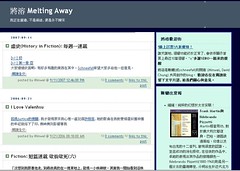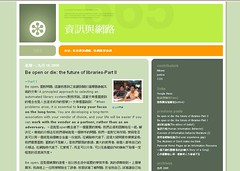作者是從語言的角度切入,旁徵博引,說明語言是如何影響網站設計、可用性等。從最簡單翻譯來看,會遇到的問題有:
- 字詞所表達的意義(Agreement regarding the meaning of words)
- 專有名詞、術語、俚語或是縮寫上的表達(Agreement on terminology, particularly for words of a technical nature and agreed actions regarding slang and abbreviations)
- 片語其中所背後隱含的涵意(Phrases and meanings, which cannot be translate)
- 文字的方向(The direction of the text)
- 日期、時間、姓名的格式(Formats of such things as dates, times and names)
- 字詞慣用的拼法(Choice of spelling convention)
people exhibit different personalities and emphasize different issues and opinions, depending upon which of their two languages that they were operating in at the time. These studies demonstrate the important role that language plays in everyday experience, and more importantly, the intertwining of language and the cultural context in which language is learnt.Hofstede(1994)認為文化(一種泛稱)是人類心智運作(human mental programming)的概念。主要由三項要素組成,人性(human nature),是由全人類共同傳承;文化(culture),是在群體間共享,個體會彼此學習;最後則是個性(personality),只針對個人,但也會被學習與傳承。人性雖是共通價值,但需要藉由文化加以塑型,呈現出來。文化影響我們有意志的行為,但其影響就像呼吸一樣自然不自覺。因此本文作者認為每個人以文化作為注視世界之本,就像載上一層濾鏡片一樣。
在人機介面互動(human computer interaction)與可用性(usablility)方面,因為和網頁互動可視為溝通的動作,研究顯示使用者對介面的接收與喜好也是透過文化濾鏡,而網站架設本身也是如此,會受到網站開發人員之文化背景的影響。另一方面,因為網站需要的作業(task)之不同,自然而然就應用不同類型的使用者介面(user interface elements)及網站結構(site structure)。釐清使用者需求性的動作(purposeful action)與網站需求兩者的關係成了網站設計成功的必要條件。
Hillier結論:
在設計網站時,如果我們忽略了語言所包含的文化脈絡,我們即會面臨降低網站可用性的風險(If we ignore the cultural context of the language when designing the website, we run the risk of having site with reduced levels of usability)。
…
當我們架設一特定語言的網站時,我們也應該保證網站本身是依循該語言的文化規範(When we produce a website in a given language, we should also ensure that the website conforms to the norms of the culture in which that language is based)。







